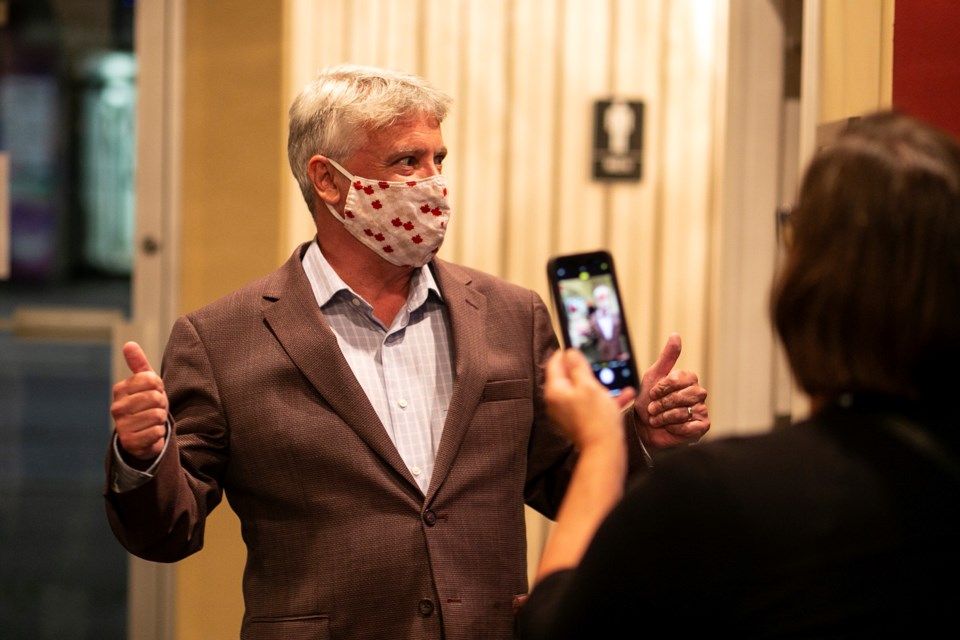The local members of parliament for Sault Ste. Marie and Algoma-Manitoulin-Kapuskasing will be working closer together after the federal Liberal Party and NDP signed a supply and confidence agreement earlier this week.
Terry Sheehan, MP for Sault Ste. Marie, said the message was clear in the fall when Canadians went to the poll to deliver yet another Liberal minority government.
“People didn’t want another election. Just getting here after the election you could see a lot of sabre rattling and Conservatives constantly voting against confidence motions which, if successful, would trigger an election in a minority government," said Sheehan. “People were telling us again and again they want Parliament to work and to work on these priorities because the vast majority of Canadians voted for progressive agendas."
The agreement lays out a number of priorities raised by the NDP in exhange for their support until an eventual 2025 election.
“It’s an agreement, but it doesn’t preclude the NDP or us from disagreeing on certain items," said Sheehan. "It also doesn’t preclude us from working with Conservatives, with the Bloc Quebecois, with the Green members on any initiative."
One of the first priorities expected to be delivered is a dental care program. Algoma-Manitoulin-Kapuskasing MP Carol Hughes said an estimated 30 per cent of people in her riding don't have dental coverage.
“This will certainly be welcome news for senior's who often call our office for assistance with being able to go to the dentist. This will be a big help for them,” said Hughes.
The intent is to have children under the age of 12 covered by the end of 2022, followed by seniors and those age 18 and under. Hughes expects all Canadians will be covered by the time the agreement is concluded in 2025.
“Of course this needs to be discussed with the provinces and territories, but this is an issue that so many people will benefit from and will keep people healthy because if you have problems with your teeth not being taken care of, eventually will have problems with other parts of your health,” she said.
Other priorities covered in the agreement include a national pharmacare program, Indigenous housing, a rapid housing initiative, more green jobs and 10 paid sick days for federal employees, among others.
“You have to remember only a year ago the Liberals voted down a dental care initiative and a pharmacare initiative we had put forward," said Hughes. "It’s interesting they are willing to work with us now in order to have a little more stability for the government."
The Liberals talked about a national pharmacare program during the last two elections, but it's an issue that has been an NDP campaign promise for even longer.
“We are hoping with the signing of this agreement that we are going to see this move a lot quicker," said Hughes.
Sheehan said that stability is needed, as Canada continues to fight the COVID-19 pandemic and the government supports the people of Ukraine.
“We saw the invasion, the illegal war that Russia has created in Ukraine. That has created a lot of challenges in the world and is affecting the economy, it’s affecting supply chains, it’s affecting a number of things," said Sheehan. "So it was really important for this deal to happen now, for us to have the stability to address those issues that are being created, in large part, by this illegal, unjust Putin war."
The recent border blockades and occupation of Ottawa also showed the need for stability, said Sheehan.
"There were certain groups within that group who put it in writing that they wanted to dissolve the MPs of parliament and replace them with themselves, the Governor General and some select senators," he said. "This just can’t happen it is not any way possible in the Canadian democratic process."
Another priority in the agreement is to find ways to increase participation in elections in Canada, including extending voting to three days instead of one and expanding main-in voting options.
Some Conservatives are calling the agreement undemocratic, noting that Canadians didn't elect an NDP government and that party's priorities should not be imposed on the country to keep a minority Liberal government in power.
Hughes and Sheehan both note that the NDP and Liberals combined for just more than half of the vote in the past election.
“If you look at the Conservative record, they don’t have much to show because they are not interested in negotiating, they are not interested in getting things done, they are interested for their own sake and what they want to achieve," said Hughes. "The Canadian population made it clear they didn’t want a majority government, they wanted a minority government and they are saying get to work for us."
Sheehan said Canadians expect parties in parliament to work together.
"The majority of Canadians chose a progressive agenda," he said. "What this agreement with the NDP does is it outlines how we can get legislation that is going to continue to support Canandians moving forward."
